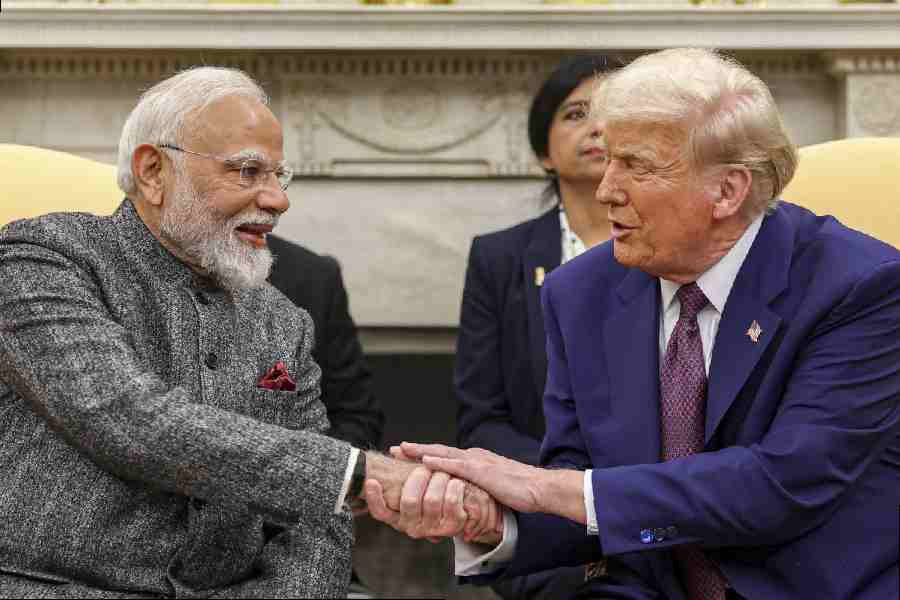India is set to ask for an “exemption” from US President Donald Trump’s reciprocal tariffs when a high-level US trade delegation arrives in New Delhi on Tuesday for four days of critical negotiations, according to Bloomberg.
The report comes as Trump separately on Monday warned countries that buy oil and gas from Venezuela they would be hit with a 25-per-cent “secondary tariff” that could affect Indian refiners.
The tariff, which aims to punish Venezuela for allegedly sending criminals and violent gang members to the US, could hike costs for Indian refiners that restarted buying crude oil from Venezuela in 2023 after Washington eased sanctions on the South American nation.
Bloomberg, quoting sources familiar with the US trade talks, said that Indian officials “would make a case for a reprieve” from Trump’s reciprocal tariffs in the discussions. The US delegation is being led by Brendan Lynch who’s the assistant US trade representative for South and Central Asia.
Trump has said countries can avoid tariffs if they reduce their own levies or shift manufacturing to the US. In what might spell hope for India, Trump said on Monday that he may give “a lot of countries” breaks on tariffs, but he did not divulge details.
The timing of the four-day meeting with the US delegation is crucial with Trump set to impose reciprocal tariffs worldwide on April 2, though he has said some announcements could be delayed.
Trump’s touted trade “Liberation Day” could significantly impact Indian exports, including agriculture, diamonds, and pharmaceuticals unless some agreement is reached.
The US delegation will coordinate with Indian officials on a negotiation framework for a proposed Bilateral Trade Agreement (BTA).
Prime Minister Narendra Modi and the US President set a November deadline for concluding the BTA during Modi’s visit to Washington following Trump’s return to office.
The US Embassy in India underscored Washington’s focus on ensuring fair Indian market access for American businesses and said in a statement that it wanted the talks to be “constructive, equitable and forward-looking”.
New Delhi wants a broader settlement under a BTA and is willing to lower tariffs on certain goods in exchange for investment commitments and better trade terms, officials have said.
Despite cordial ties between Modi and Trump, the US President has repeatedly lambasted India as the global “tariff king”.
Data from the World Trade Organization shows India's average tariff rate stands at 17 per cent, compared to just 3.3 per cent in the US. Agriculture duties are particularly steep, averaging 39 per cent, nearly eight times higher than those in the US.
Trump’s push for reciprocal tariffs is rooted in his wider effort to address trade imbalances with countries across the globe that he says have been “ripping off” the US. He says reciprocal tariffs would raise an “astronomical” amount of money for US coffers.
India is the ninth-largest US trading partner. It racked up a $46-billion surplus with America in 2024 – 5 per cent higher than the previous year.
This surplus, coupled with protectionist policies, has put India in the crosshairs of Trump's trade crackdown. The government’s "Make in India" drive reinforced protectionist policies with tariffs edging higher on electronics and other products.
US tariff hikes could impact up to $7 billion worth of Indian exports or some 8 per cent of India's total shipments to the U.S., analysts say. Sectors such as pharmaceuticals and processed food would be among the most severely hit.











